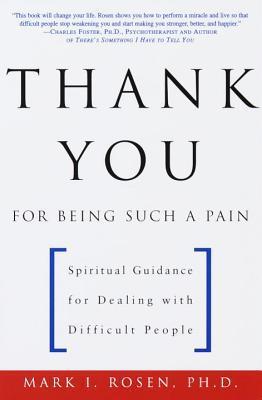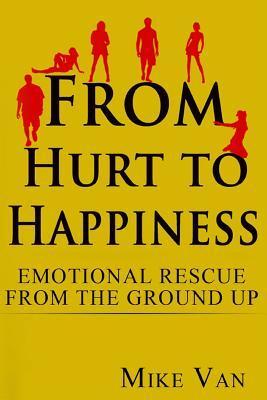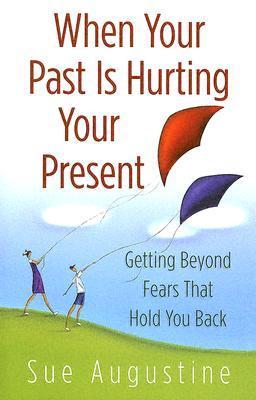
Thank You for Being Such a Pain: Spiritual Guidance for Dealing with Difficult People
Book Description
What if the person driving you crazy is your greatest teacher? In "Thank You for Being Such a Pain," spiritual guide Mark Rosen unveils the hidden gifts of challenging relationships. With each turn of the page, discover how to transform frustration into enlightenment, empowering you to reclaim your peace and navigate conflict with grace. Through insightful anecdotes and practical wisdom, this book illuminates the path to understanding difficult people while revealing the surprising strength found in vulnerability. Are you ready to embrace the lessons that come from the ones who test your limits the most?
Quick Book Summary
Mark Rosen’s "Thank You for Being Such a Pain" reframes the way we perceive and interact with challenging individuals in our lives. Rather than viewing difficult people as nuisances or adversaries, Rosen encourages readers to recognize them as hidden teachers who offer opportunities for spiritual and personal growth. Drawing upon a mix of spiritual philosophies, psychological insights, and real-life anecdotes, Rosen provides practical guidance for transforming frustration into understanding and conflict into compassion. The book shows that, with the right perspective and tools, even the most trying relationships can lead to greater self-awareness, inner peace, and emotional resilience. Rosen empowers readers to embrace vulnerability, employ mindfulness, and ultimately reclaim their sense of grace when navigating the complexities of human interaction.
Summary of Key Ideas
Table of Contents
Recognizing Difficult People as Spiritual Teachers
Rosen begins by challenging the conventional view of difficult people as obstacles to happiness. Instead, he suggests that these individuals serve as mirrors reflecting our unexamined patterns, vulnerabilities, and growth edges. Difficult people, in this philosophy, present us with opportunities to confront traits or issues we might otherwise ignore. By welcoming the challenges they present, we embark on a journey of self-discovery and spiritual evolution, redefining conflict as a catalyst for positive change.
Transforming Emotional Triggers into Self-Awareness
The book then delves into the concept of emotional triggers, those moments of irritation, anger, or frustration that arise in the presence of difficult people. Rosen teaches readers how to pause and reflect on these triggers, transforming them from automatic reactions into meaningful signals of inner work. By exploring the roots of these emotional responses, we can gain clarity into our own needs, fears, and expectations, weakening the hold of negative patterns over our lives and making conscious choices in how we respond.
Developing Compassion and Empathy in Conflict
Central to Rosen's approach is the cultivation of compassion and empathy, even when faced with seemingly unreasonable or hurtful behavior. The author encourages looking beyond surface actions to perceive the underlying pain or unmet needs that may drive someone’s difficult behaviors. By nurturing empathy, we foster healthier relationships and set boundaries without hostility or resentment. Compassion also protects our own peace, letting us disengage from cycles of blame and judgment.
Harnessing Vulnerability as a Source of Strength
The book highlights the surprising power found in vulnerability. Instead of seeing vulnerability as weakness, Rosen frames it as an invitation to authentic connection and healing. Embracing our soft spots allows us to connect genuinely not only with others but with our truest selves. Acknowledging that we, too, are imperfect and sometimes difficult helps cultivate humility and deepens our spiritual resilience. This mindset shift transforms how we handle ourselves and others in moments of tension.
Practical Techniques for Inner Peace and Grace
In the final sections, Rosen offers practical strategies for maintaining sanity and serenity amid everyday conflicts. These include mindfulness practices to stay grounded, communication techniques that de-escalate tension, and tips for self-care that replenish emotional reserves. By integrating these tools, readers can respond to life's provocations with greater wisdom, grace, and centeredness. Throughout, Rosen reiterates that the people who challenge us the most are, in fact, essential guides on our journey to deeper self-understanding and lasting inner peace.
Download This Summary
Get a free PDF of this summary instantly — no email required.





